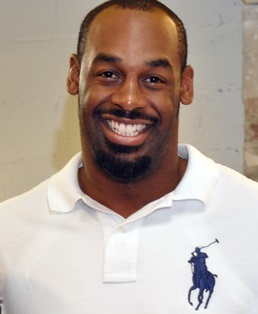A Quote by Josh Allen
Literally everybody talks about 56 percent completion percentage. It gets brought up in every meeting. It's something I'm trying to work on.
Related Quotes
Economists often talk about the 80/20 Principle, which is the idea that in any situation roughly 80 percent of the “work” will be done by 20 percent of the participants. In most societies, 20 percent of criminals commit 80 percent of crimes. Twenty percent of motorists cause 80 percent of all accidents. Twenty percent of beer drinkers drink 80 percent of all beer. When it comes to epidemics, though, this disproportionality becomes even more extreme: a tiny percentage of people do the majority of the work.
I go into every meeting, into every room and for every speech understanding the standard deviation, the Bell Curve. I know there are about 10-15 percent of people in the room, who say, "I've been trying to say this for years. Finally. I agree. Yes, yes, yes." I know there are about 15 percent of the people in the room who think I'm an idiot, who think I don't know what I'm talking about, who think I'm naive or I have oversimplified everything. The majority who are open to the ideal.
Eighty five percent of Americans, year in and year out, say they believe everyone should have universal coverage. The problem is everybody has a different idea of how to make it work. And unfortunately what you have is 85 percent of Americans are reasonably well-insured. And when you start thinking about how you're going to get the remaining 15 percent, everyone gets very nervous.
Relate your ask to the group at large by using "we" instead of "I." So I might say, "We grew our traffic by X percent this quarter and it was awesome; I brought in X percent of that." It also helps when women make it about collaboration: This is not a battle - you want to work together with the other person to get to a place you are both happy with - so remind them you're trying to come to a mutually beneficial agreement.
At a meeting in her office in the late summer of 2002, months before the war in Iraq, prisoner abuse at Guantanamo is discussed. Condoleezza Rice brings in Donald Rumsfeld for a meeting, and they all agree they have to do something. Nothing gets done. Did everybody understand we were going to be as tough as we could be people we thought were Al Qaeda? Is there a better way to get information, get their trust, establish rapport, try to change their views? Nobody wants to think about that. It's just, let's beat them up. And that attitude was widespread throughout the Administration.





































